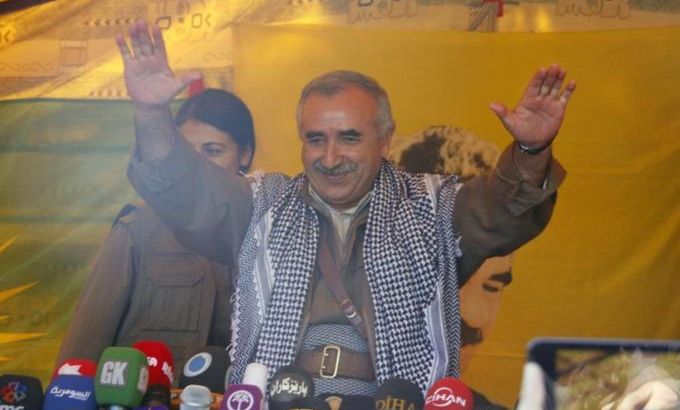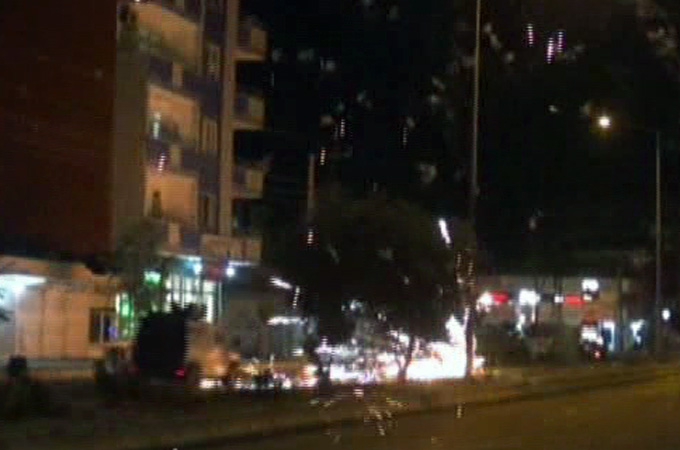PKK set to begin withdrawal from Turkey
Kurdistan Workers’ Party fighters prepare to begin move to northern Iraq’s Qandil mountains as part of peace process.

Kurdish fighters are due to begin their withdrawal from Turkey into northern Iraq, a major step towards ending a decades-long conflict.
The pullout, announced in March, is the first visible sign that months of talks between the state and the outlawed Kurdistan Workers’ Party (PKK) could succeed in ending 29 years of fighting.
About 2,000 PKK members are expected to begin leaving Turkey on foot, travelling through the mountainous border zone to reach their safe haven in the Qandil mountains in northern Iraq.
They will join another 5,000 fighters at the command base, which has been used as a springboard for attacks against Turkish security forces.
“The withdrawals are expected to take three or four months to complete,” said Selahattin Demirtas, a pro-Kurdish politician who has been part of the peace process.
Al Jazeera’s Omar Al Saleh, reporting from Duhok in northern Iraq, said on Wednesday that the PKK has released a statement saying their withdrawal had started, and that the fighters leaving their camps had said it would take several weeks to reach the Qandil mountain stronghold.
There had been no confirmation from the Turkish state that the withdrawal was under way.
Political stability
On Tuesday, the Kurdish rebels said they would not renege on their promise to withdraw on the orders of their imprisoned leader Abdullah Ocalan.
Ocalan called for the historic ceasefire in March from his cell after months of clandestine peace talks.
Huseyin Bagci, professor of International Relations at the Middle East Technical University told Al Jazeera that there was a strong political will on both sides.
“We need a politically stable Turkey now, particularly after the Arab Spring. The political will has never been so strong in our history as it is today.
“In the coming months Turkey will not have clashes. Peace and economic development will take place.
“For the Kurds the next couple of years will bring more welfare and less military oppression. They will have better education and infrastructure within the country.
“Kurds are the winner in economic and political terms in the future.”
In the southeast of Turkey, pro-Kurdish protesters threw petrol bombs and firecrackers at police on Tuesday, hours before an agreed pullout of rebel fighters from the mostly Kurdish southeast.
Violence was also reported in northern Iraq on Wednesday, with three separate suicide bombing incidents targeting a Kurdish police car, a Kurdish demonstration party headquarters and a Kurdish police checkpoint.
PKK complaints
The PKK, while agreeing to the withdrawal, has said it will not lay down its arms during the move and the rebels have complained that Ankara has boosted troop levels and is carrying out surveillance flights at the border.
 |
| PKK supporters in turkey threw petrol bombs at police [Al Jazeera] |
The Turkish army has not confirmed the measures but said their “fight against any terrorism continues”, although no fatal clashes have occurred in recent months, the first such lull in years.
The PKK rebel command warned late last month that they would strike back if they were attacked.
“Our forces will use their right to retaliate in the event of an attack, operation or bombing against our withdrawing guerrilla forces and the withdrawal will immediately stop,” PKK acting leader Murat Karayilan said.
Turkish Prime Minister Recep Tayyip Erdogan has repeatedly vowed that retreating rebels “will not be touched”.
Erdogan said on Tuesday that “laying down weapons” should be the top priority for the PKK for the process to succeed.
Karayilan said in April that they were expecting Ankara to “do its part” before giving up arms, and called for wider constitutional rights for Turkey Kurds, who constitute 20 percent of the 75 million population.
The PKK, blacklisted as a terrorist group by Turkey, the US and EU, started an armed rebellion in the Kurdish-majority southeast in 1984.
The group had originally demanded full independence for a Kurdish state in southeastern Turkey, but has moderated its goals to broader political and cultural autonomy.
| ||
